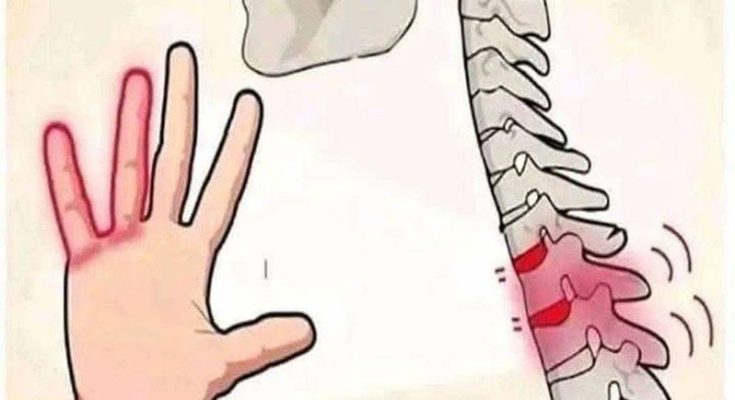Experiencing numbness or tingling in your hands can be unsettling, but it’s often a sign of something treatable or manageable. While occasional tingling may not be cause for concern, persistent or severe symptoms could indicate an underlying issue that requires attention. Below are some common reasons why you might feel these sensations in your hands.
1. Carpal Tunnel Syndrome
- What It Is : A condition caused by pressure on the median nerve, which runs through the wrist and into the hand.
- Symptoms : Numbness, tingling, or weakness in the thumb, index finger, middle finger, and part of the ring finger.
- Why It Happens : Repetitive motions (e.g., typing, texting, or gripping tools) or prolonged wrist strain can compress the nerve.
- What to Do : Rest, wear a wrist splint, or consult a doctor for physical therapy or other treatments.
2. Peripheral Neuropathy
- What It Is : Damage to the peripheral nerves, often due to diabetes, vitamin deficiencies, or autoimmune diseases.
- Symptoms : Persistent tingling, burning, or loss of sensation in the hands and feet.
- Why It Happens : High blood sugar levels, nutrient imbalances, or inflammation can harm nerve endings.
- What to Do : Manage underlying conditions like diabetes, take prescribed supplements, and seek medical advice if symptoms persist.
3. Raynaud’s Phenomenon
- What It Is : A condition where small blood vessels in the hands constrict in response to cold or stress.
- Symptoms : Temporary numbness, tingling, or discoloration (white, blue, or red) in the fingers.
- Why It Happens : Reduced blood flow to extremities during episodes of vessel constriction.
- What to Do : Keep hands warm, avoid triggers like cold temperatures, and manage stress. Severe cases may require medication.
4. Thoracic Outlet Syndrome
- What It Is : Compression of nerves or blood vessels near the collarbone, affecting circulation and nerve signals to the hands.
- Symptoms : Tingling, pain, or weakness in the fingers, especially after repetitive arm movements.
- Why It Happens : Structural abnormalities, poor posture, or trauma to the neck and shoulder area.
- What to Do : Practice good ergonomics, stretch regularly, and consider physical therapy or professional evaluation.
5. Vitamin Deficiencies
- What It Is : Lack of essential vitamins, particularly B vitamins (B6, B12), can lead to nerve dysfunction.
- Symptoms : Tingling, numbness, or burning sensations in the hands and feet.
- Why It Happens : Insufficient nutrients impair nerve health and function.
- What to Do : Incorporate foods rich in B vitamins (like eggs, spinach, or fortified cereals) or speak with a healthcare provider about supplementation.
6. Cervical Radiculopathy (Pinched Nerve in the Neck)
- What It Is : A compressed nerve root in the cervical spine (neck) causing referred pain or tingling down the arms.
- Symptoms : Sharp pain, tingling, or numbness radiating from the neck to the hands.
- Why It Happens : Degenerative disc disease, herniated discs, or poor posture.
- What to Do : Adjust posture, perform gentle stretches, or seek chiropractic care or medical intervention.
7. Anxiety or Panic Attacks
- What It Is : Excessive stress or anxiety can cause temporary numbness or tingling due to changes in blood flow or hyperventilation.
- Symptoms : Sudden onset of tingling, often accompanied by sweating, rapid heartbeat, or shortness of breath.
- Why It Happens : Overactivation of the nervous system during heightened emotional states.
- What to Do : Practice relaxation techniques, such as deep breathing or meditation, and address chronic stress with professional help if needed.
8. Poor Circulation
- What It Is : Reduced blood flow to the hands due to blockages, low blood pressure, or lifestyle factors.
- Symptoms : Cold hands, intermittent numbness, or tingling, particularly in cold environments.
- Why It Happens : Conditions like arteriosclerosis, smoking, or sedentary habits restrict blood supply.
- What to Do : Stay active, quit smoking, and maintain a healthy diet. Seek medical advice if circulation issues worsen.
9. Injury or Trauma
- What It Is : Direct damage to nerves or tissues in the hand or wrist from injury or overuse.
- Symptoms : Immediate or delayed numbness, tingling, or discomfort following an accident or repetitive strain.
- Why It Happens : Swelling, bruising, or nerve compression at the site of injury.
- What to Do : Rest, apply ice, and elevate the affected area. Consult a doctor for serious injuries.
10. Systemic Diseases
- What It Is : Certain medical conditions, such as multiple sclerosis, lupus, or rheumatoid arthritis, can affect nerve function.
- Symptoms : Chronic tingling, numbness, or weakness in the hands and other parts of the body.
- Why It Happens : Inflammation, autoimmune responses, or nerve degeneration associated with these diseases.
- What to Do : Work closely with a healthcare provider to diagnose and manage underlying conditions.
When to See a Doctor
While occasional tingling is usually harmless, certain scenarios warrant professional attention:
- Symptoms last longer than a few days or worsen over time.
- Numbness or tingling affects both hands simultaneously without obvious cause.
- Accompanied by weakness, muscle wasting, or difficulty moving the fingers.
- Associated with chest pain, dizziness, or shortness of breath (possible signs of a more serious issue).
Final Thoughts
Numbness or tingling in your hands can stem from various causes, ranging from minor inconveniences to potential warning signs of larger health concerns. By understanding possible explanations and addressing lifestyle factors, many cases can be resolved or managed effectively. However, persistent or severe symptoms should never be ignored—consulting a healthcare professional ensures proper diagnosis and treatment. Take care of your hands, and they’ll continue taking care of yo



